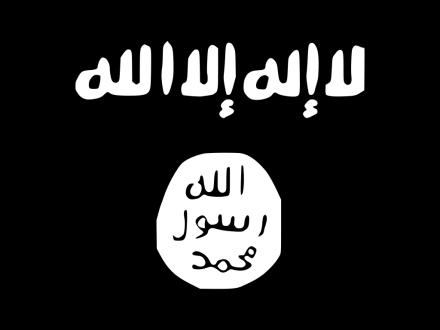
Last week in Syria, the Islamist rebel group Islamic Front announced an alliance with the Communist Kurdish YPG group to fight ISIS. Around the same time another group of Syrian rebels, including the Syrian Free Army, hatched a non-aggression pact with ISIS and said they would not join the US-led coalition against ISIS unless it also toppled Assad. Some of these groups were recently described as US ‘allies’.

Whether or not the US-led coalition against ISIS has a firm plan, it’s time to accept there is little we can do to destroy this guerrilla army soon. In fact, overblown rhetoric about ISIS’s capabilities and a rush to blind action will do us more harm than good. Destroying ISIS – a group that poses a bigger threat to Muslims than the West – is important but requires careful planning not hysteria fanned by the media and politicians.
There are important reasons why there is little we can do about ISIS now, even if it murders more British and American hostages.
Firstly, ISIS cannot be destroyed unless Syria is stabilised. It was the uprising against Assad that fuelled the rise of ISIS and the dictator has deliberately strengthened ISIS to exploit Western fears of Islamic extremism. We no longer have any reliable allies in Syria and the rebel groups aren’t going to align themselves with us on Obama’s command. Furthermore, Obama has no legal justification for hitting ISIS targets in Syria.
Then there’s the problem of Iraq, where several Sunni tribes are in an alliance with ISIS due to built up resentment against the United States and the Iraqi government. The US is now working to reverse this but it won’t be easy. Plus, the Iraqi army is badly trained and previously crumbled in the face of ISIS fighters. Getting the Iraqi army to destroy ISIS will take a lot of time and more money.
Plus, Arab states are very proving difficult to persuade. The coalition against ISIS cannot be led by the US or UK or it would be a logistical and propaganda boon for the group, as I’ve said before. But Arab countries are still unwilling to actively confront ISIS for several reasons: either because they fear retaliation (Turkey didn’t even join the coalition because ISIS holds 49 Turks hostage), or because they fear domestic resentment (Saudi Arabia), or because they still see Assad as the bigger problem. Bluntly, ISIS is not enough of a threat to the other Arab states yet for them to lead against it.
And finally, Obama’s plan itself is big on rhetoric but small on action. It boils down to this: increased air-strikes in Iraq and a plan to train 5,000 rebels to take on ISIS in Syria. That’s about it. The latter plan, Hagel admitted yesterday, would take at least 8 – 12 months for fruition – a long time. And then Hagel admitted that even 5,000 fighters won’t turn back the tide.
To summarise, neither the Syrian rebels nor the Arab states see ISIS as a bigger problem than Assad. And since President Obama is not going to send troops back to Iraq, we have to wait until the Arab states really start to panic. And forget about ‘destroying’ ISIS; the US hasn’t managed that with Al-Qaeda after 13 years of invasions, bombings and drones. At best, we can hope that ISIS is reduced to a small rump after several years.
There are two lessons to be learnt here. The United States now has far less influence over events in the Middle East than it cares to admit. It has failed so badly on several fronts that the worsening mess has given rise to powerful, global jihadi groups. Even Arab dictators cannot control events like they could.
Secondly, US and UK foreign policy has to learn from the first lesson. Rushing back into the Middle East without understanding local complexities or how the jihadis could outmaneuver us would be really counter-productive. It would not only risk more lives there but increase the risk of terrorist attacks on Western soil. To fight ISIS, our politicians have to stop pretending that something can be done quickly and comprehensively. Only then can we have an intelligent and useful debate on how to deal with ISIS.




More from LabourList
‘It’s one year since I became Britain’s youngest MP. Here’s what I’ve achieved so far’
Tribute: ‘David Lipsey’s joie de vivre is missing in Labour politics today’
Ellie Reeves: ‘One year in, the next phase begins – focused on living standards’